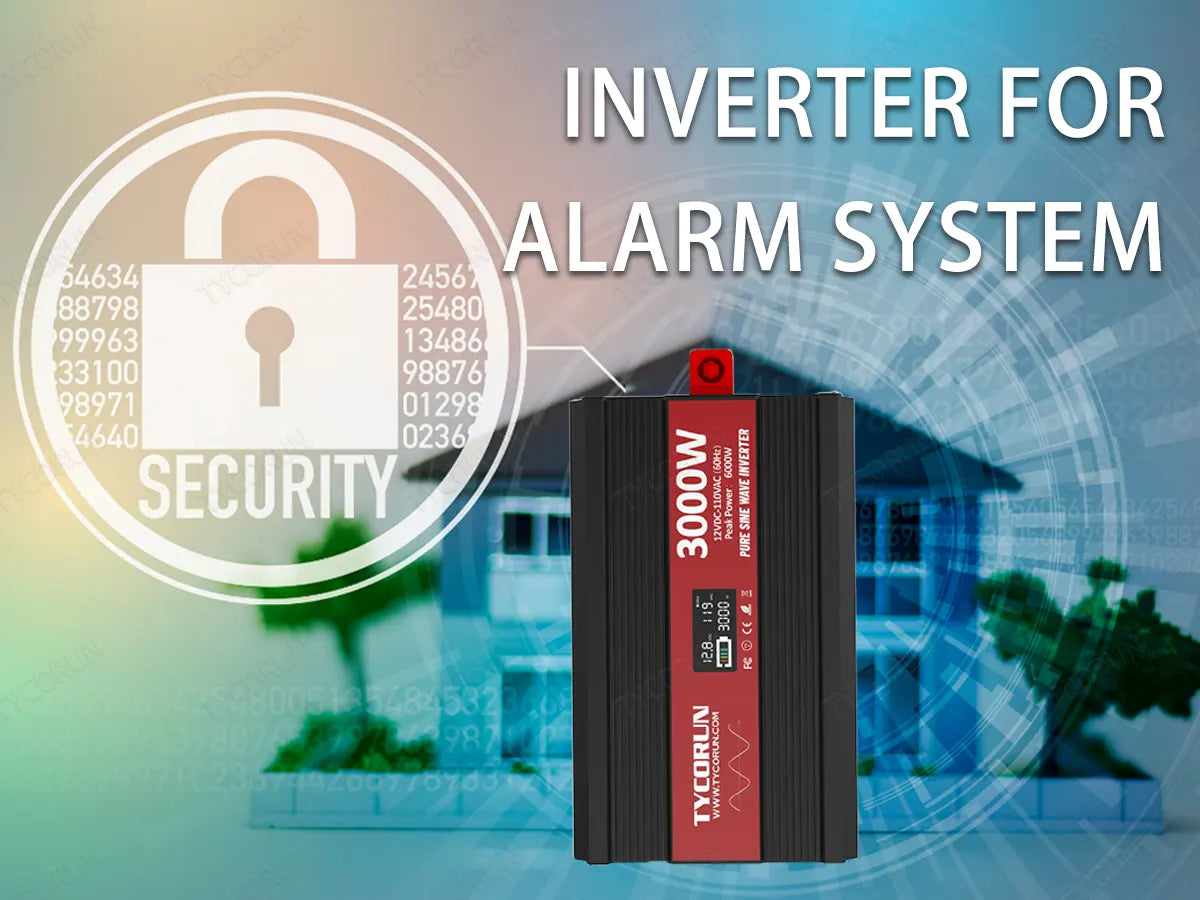
Whether it’s at home or at business, an alarm system is everyone’s choice to protect themselves from theft and losses. However, power breakdowns cause a great threat to its functionality.
To overcome this issue, people choose an inverter for alarm system. It ensures that the security mechanism receives a power supply that is uninterrupted at all times during blackouts. The function of the inverter for alarm system is to convert DC power from the batteries into AC power. This provides the battery backup power to the alarm system and keeps it up all times. Thereby, providing continuous protection and optimal working against any intruders.
If you want to learn more about the functions of inverter for alarm system, and is it worth investing in an alarm system inverter, make sure to read this blog until the very end.
Main content:
- How many watts does an alarm system use?
- How long does a backup battery last in an alarm?
- Will house alarm work without backup battery?
- What is the difference between UPS and inverter for alarm system?
- A better solution for alarm system back-up
- How do you use an inverter for alarm system?
- Why choose pure sine wave inverter for alarm system?
- FAQs
1. How many watts does an alarm system use?
An alarm system usually uses around 30 to 40 watts of power. However, this value is not always the same for every type of device. The exact power wattage depends on the model, components, and other features specific to the mechanical system you are dealing with.
You must understand the power requirements properly before choosing an inverter for alarm system. Ensure that the inverter you purchase is compatible with the power demand of the security device. Ensuring that both devices are appropriately sized is crucial for the optimum working of the overall surveillance framework.
Opting for an inverter for alarm system will help you a lot, even if the power grid fails, your backup batteries and inverter for alarm system will keep the protection set-up operational.
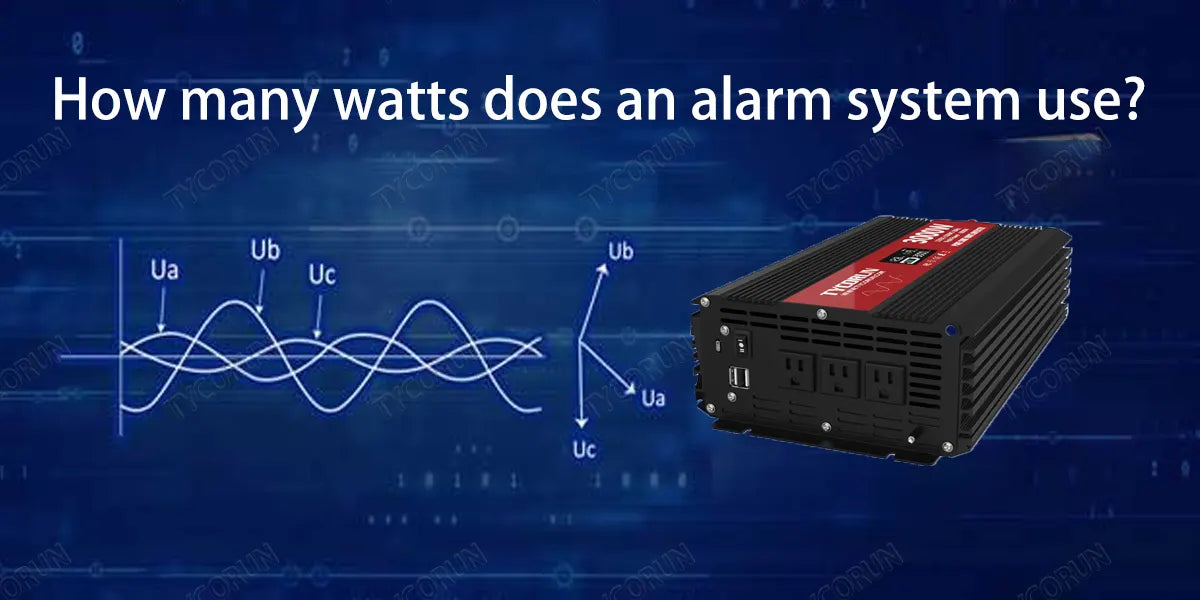
2. How long does a backup battery last in an alarm?
A backup battery shall last anywhere from around 8 hours to 24 hours in an alarm. The total duration shall depend on different factors like the battery capacity, various devices connected, power usage, etc.
At a time when the power is cut, the backup battery will take over. It will provide the energy for the surveillance system to keep on working. An adequate high capacity battery will ensure a continuous power supply even when the power runs out. Additionally, it will also extend the working limit of the security system during emergencies.
3. Will house alarm work without backup battery?
No, the house alarm will not work without a backup battery. However, it can work without a direct backup battery supply if you have an inverter for alarm system integrated with it. In case of the absence of the backup battery and inverter for alarm system, the system will fail during blackouts. This is because no power will reach the alarm and thus, it will not be able to function.
However, it is worth noting that the inverter for alarm system also requires batteries to provide power and cannot provide electrical supply on its own. Therefore, if batteries are removed from the inverter as well, then it is not possible for the house alarm to work.
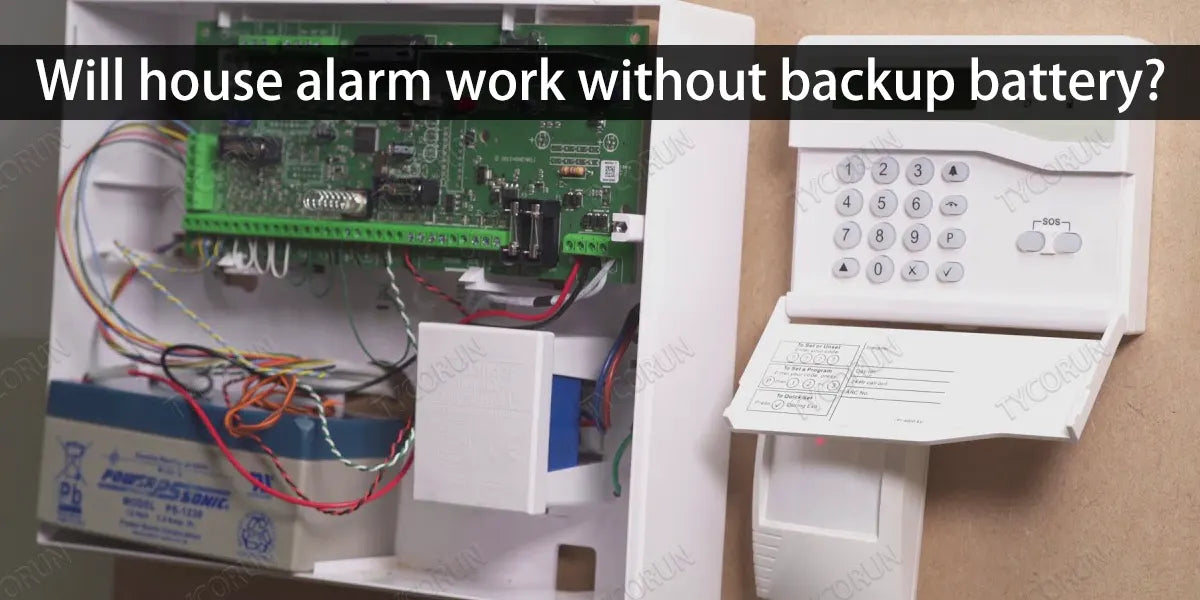
4. What is the difference between UPS and inverter for alarm system?
There are many differences between a UPS and an inverter for alarm system. A UPS (Uninterruptible Power Supply) will provide battery backup power and inverter function as well as protect electronic devices during power breakdowns by regulating voltage and integrating software. On the other hand, an inverter for alarm system shall convert DC in battery to AC power when the electricity supply is cut. For more information on the comparison you can check out UPS vs inverter.
The primary use of an inverter is to convert power while UPS is used for providing backup power during electrical failures. The main use of inverter is in solar panels, alarm system, etc. However, a UPS is specifically used in data centers and critical systems. An inverter can be used to manage power conversion properly.
5. A better solution for alarm system back-up
A home solar system is a better solution for an alarm system backup because it offers sustainable and reliable power. It uses solar energy to ensure the continuous working of alarm systems throughout a property.
Additionally, the home battery storage system will also integrate with the inverter for alarm system to provide an eco-friendly and cost-effective backup power supply. Therefore, using solar technology along with your inverter for alarm system will improve your home security measures and contribute to a greener, more reliable future.
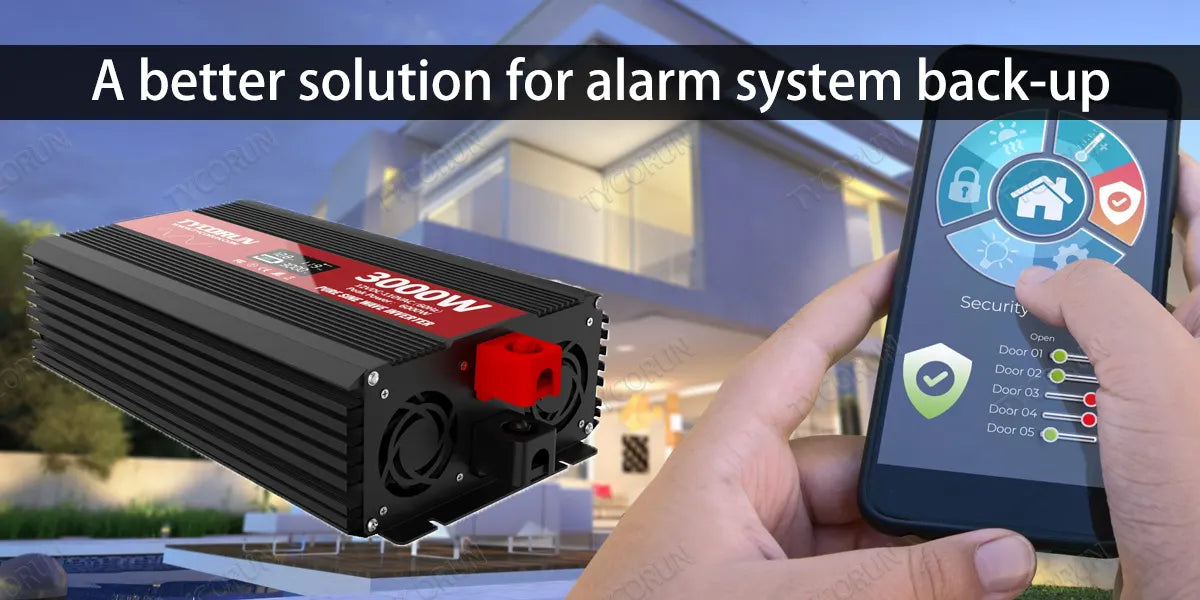
6. How do you use an inverter for alarm system?
Using an inverter for alarm system is quite straightforward. Firstly, make sure that the inverter for alarm system is installed properly and connected to the power supply of the alarm. Normally, the inverter converts DC power from batteries into AC power, keeping the alarm functional. However, in case of power failure, the inverter for alarm system automatically switches to battery power. This ensures continuous working.
You must also make sure to have regular maintenance of the inverter for alarm system to uphold its reliability. By proper usage of the inverter for alarm system, you will protect both the device as well as your entire home and family.
7. Why choose pure sine wave inverter for alarm system?
You should choose a pure sine wave inverter because of its unique attributes. The noise produced by their inverter for alarm system is very low. It ensures that no harm is caused to your costly equipment in case of voltage fluctuations.
You will feel the difference in usage between connecting your devices to the pure sine wave vs modified sine wave inverter. The inverter for alarm system also ensures a constant current flow throughout the device for an uninterrupted power supply.
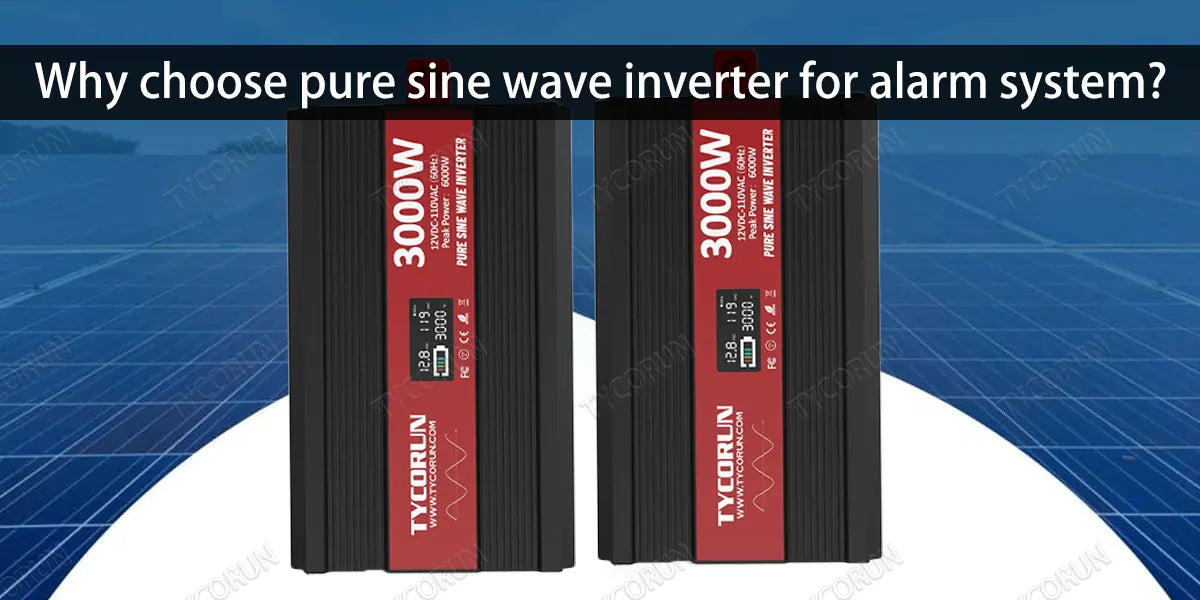
8. FAQs
① What can a 720-watt inverter run?
A 720-watt or a 1200 VA inverter combined with one battery can power a television, DSTV, computer, some lamps, as well as a cell phone charger. It can last for up to 4 hours.
② How much power do inverters use?
An inverter uses approximately 10% more power than what the actual device consumes. This is because of losses due to power conversion.
③ What makes a good inverter?
Additional features are also important when deciding whether the inverter for alarm system is good or not. These include its resistance to high temperatures, overloads, fluctuating voltages, and short circuits. If the inverter has all of these traits, it can safely protect your device from any harm or damage, making it last for a longer time.
Related posts: top 10 solar inverter best brands in USA, global top 10 best solar inverter brands, top 10 best inverter brands in India
















